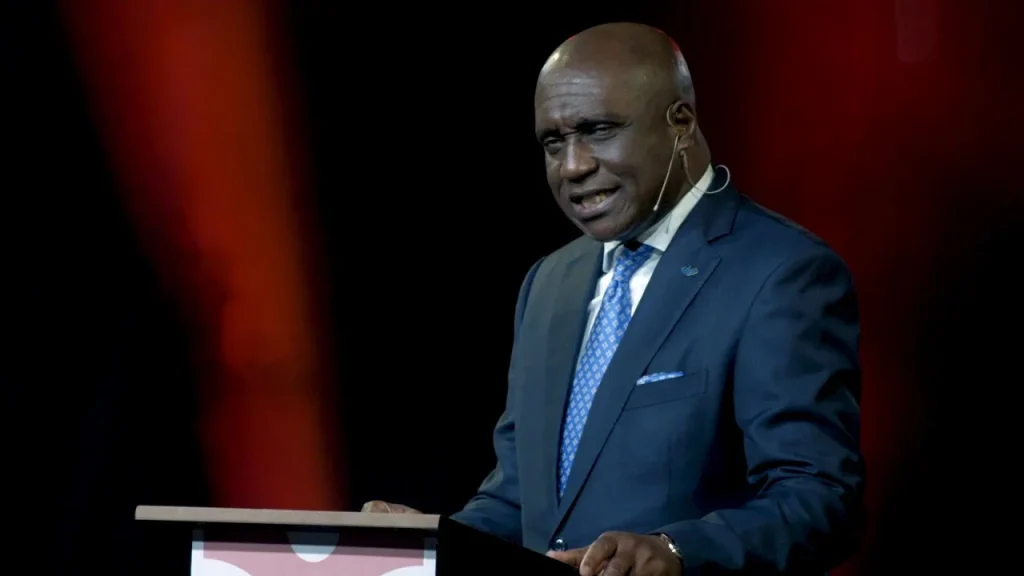Debate rages on following the proposal to outlaw the importation of used vehicles over 20 years old in the country. The potential ban sparks a flurry of conflicting opinions among stakeholders, spurring discussions on economic growth and environmental impact. Justice Okamgba delves into the polarizing discourse.
The National Automotive Design and Development Council (NADDC) has spearheaded a contentious initiative to halt the influx of used vehicles surpassing two decades. The objective is twofold: curbing the nation’s deluge of dated automobiles and fostering the advancement of the local automotive sector.
Joseph Osanipin, the Director-General of NADDC, unveiled the council’s strategy to collaborate with pertinent authorities in enforcing age restrictions on imported cars and delineating minimum quality benchmarks for incoming vehicles. Emphasizing the necessity for localized production, Osanipin articulated plans for a deletion policy, aiming to catalyze domestic content growth and reduce dependence on foreign supply chains.
Despite recurrent endeavors to revive the ailing domestic industry, Nigerians heavily rely on imported vehicles to fulfill their automotive requisites. The International Trade Administration of the United States divulged that Nigeria’s annual demand for vehicles reaches 720,000 units, starkly eclipsing the local assembly output of a mere 14,000 units per year, compelling a substantial reliance on imports to meet consumer needs.
In the first three quarters of 2023, data from the National Bureau of Statistics disclosed that Nigeria imported used vehicles valued at N926.09 billion from the United States and the United Arab Emirates, underscoring the nation’s substantial dependence on overseas automobile sources.
This recent proposition echoes previous calls for restrictions on used vehicle imports. Hameed Ali, the former Controller-General of the Nigeria Customs Service, advocated for a ban on vehicles exceeding seven years during a budget defense session in 2021, underscoring the imperative of roadworthy vehicles whilst nurturing indigenous production.
Industry experts are divided on the potential ramifications of the proposed ban. While some assert that it could galvanize local manufacturing, others contend that imported vehicles, including damaged ones, serve as vital reservoirs of spare parts, invigorating the automotive ecosystem.
Victor Ezeali, a Battery and Power Systems Analyst at DM Lustrous Cars Ltd, decried the influx of aged vehicles into Nigeria, highlighting safety concerns and advocating for a bolstered steel industry as a foundation for domestic manufacturing.
Conversely, advocates for affordable mobility caution that a ban on importing vehicles from 2007 and older may exacerbate parts scarcity and price surges, as these salvaged components sustain the existing vehicle population in the country.
The proposal also reignites discussions on environmental impact. Fidel Mwaki, Managing Partner at FMC Advocates, asserts that curtailing old imports could mitigate the detrimental effects of vehicular pollution and expedite the transition to eco-friendly transportation.
Yusuf Adah, Chairman of Automedics Motor International, contends that banning the importation of vehicles from 2007 and earlier would disproportionately affect average Nigerians who rely on these affordable options, while also underscoring the industry’s reliance on salvaged parts from imported vehicles.
Underscoring the intricate web of challenges, Adah underscores the industry’s overarching dependency on imported products, notably from China, accentuating the need for a holistic approach to invigorate the sector beyond restricting imports.
The ongoing dialogue reflects the intersection of economic, environmental, and social considerations, underscoring the complexity of policy measures in nurturing domestic industries whilst ensuring consumer accessibility and sustainability.



